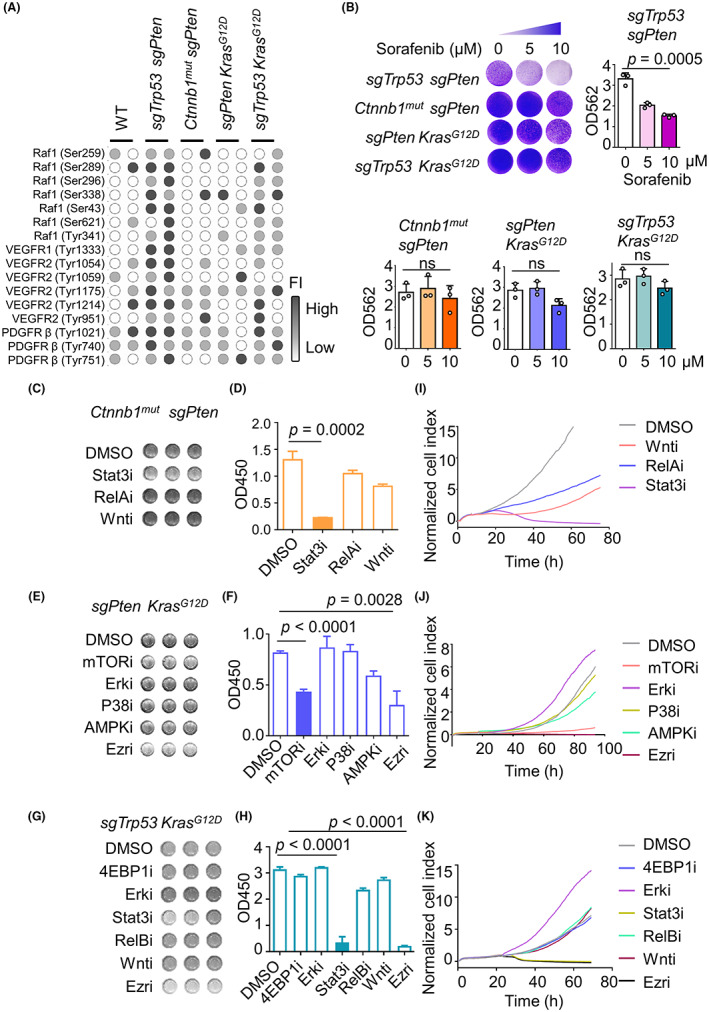FIGURE 5.

Inhibition of specific kinase signaling cascades can inhibit hepatocellular carcinoma (HCC) tumor cell growth. (A) Heatmap shows the phosphorylation levels of proteins pharmacologically inhibited by sorafenib in normal liver and advanced murine HCC specimens. Results standardized by minimum–maximum normalization. (B) Mouse primary HCC cells are resistant to sorafenib treatment in vitro. Plate colony formation assay results for four mouse primary HCC cell lines. Cells were grown in the absence or presence of sorafenib at the indicated concentrations for 3 days, prior to fixing and staining. (C–K) Cell lines were treated with small molecule inhibitors of specific kinase signaling cascades, as indicated. (C, F, I) Representative CCK‐8 assay, (D, G, J) mean values of quantitative CCK‐8 results, and (E, H, K) RTCA assay of four mouse primary HCC cell lines. Experiments were repeated three times. Ezri, ezrin inhibitor; ns, not significant; OD, optical density; PDGFRβ, platelet‐derived growth factor receptor β; VEGFR, vascular endothelial growth factor receptor.
